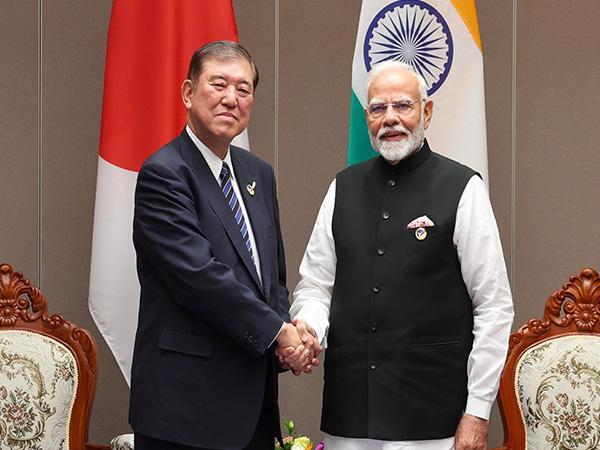
Our Technology & India’s Talent Complement Each Other: Japan PM
In a recent address at the India-Japan Joint Economic Forum with Prime Minister Narendra Modi, Japan’s Prime Minister Shigeru Ishiba highlighted the immense potential of the India-Japan partnership, emphasizing that the combination of Japan’s advanced technology and India’s outstanding talent is leading to a dramatic expansion of economic ties between the two nations.
The India-Japan Joint Economic Forum, a significant platform for bilateral economic cooperation, brought together business leaders, policymakers, and entrepreneurs from both countries to discuss the future of Indo-Japan economic relations. During the forum, Prime Minister Ishiba stressed that the synergy between Japan’s cutting-edge technology and India’s exceptional talent pool is a key factor driving the growth of their economic partnership.
“Many Japanese companies are playing a key role in Make in India, and they are working together on the construction of the Mumbai-Ahmedabad High-Speed Rail project,” Ishiba said, underscoring the significant role Japan is playing in India’s flagship initiative to promote domestic manufacturing and infrastructure development.
The Make in India campaign, launched by the Government of India in 2014, aims to transform India into a global manufacturing hub by providing a conducive business environment, investing in infrastructure, and promoting innovation. Japan, with its reputation for technological excellence, has been actively participating in the campaign, showcasing its capabilities in fields such as automotive, electronics, and infrastructure development.
The Mumbai-Ahmedabad High-Speed Rail project, a flagship project under the Make in India initiative, is a testament to the collaboration between Japan and India. The project, which is expected to reduce travel time between the two cities to just under three hours, is being implemented by a consortium of Japanese companies, including Japan Railways, East Japan Railway Company, and JGC Corporation.
Ishiba’s remarks on the complementarity of Japan’s technology and India’s talent are particularly noteworthy, as they highlight the unique strengths of both nations. Japan is renowned for its cutting-edge technology, innovation, and manufacturing prowess, while India is home to a vast pool of talented engineers, programmers, and entrepreneurs. The combination of these strengths is creating a powerful synergy that is driving economic growth and cooperation between the two nations.
The Japan-India economic partnership has been gaining momentum in recent years, with bilateral trade and investment flows increasing significantly. In 2020, the total trade between Japan and India reached $18.6 billion, with Japan being one of India’s top trading partners. Japanese companies have also been actively investing in India, with many setting up manufacturing facilities, research centers, and innovation hubs in the country.
India, with its large pool of skilled workforce, has been attracting significant investment from Japanese companies, particularly in the fields of electronics, automotive, and pharmaceuticals. Japan, on the other hand, has been providing technical assistance, training, and technology transfer to Indian companies, helping them to upgrade their capabilities and become more competitive in the global market.
The synergy between Japan’s technology and India’s talent is also driving innovation and entrepreneurship in both countries. Japanese companies are partnering with Indian startups and entrepreneurs to develop new products and services, while Indian companies are leveraging Japan’s technology expertise to develop their own innovative solutions.
In conclusion, Prime Minister Shigeru Ishiba’s remarks at the India-Japan Joint Economic Forum highlight the significant potential of the India-Japan partnership, which is built on the strong foundations of technological cooperation and talent exchange. As the two nations continue to work together, they are likely to create new opportunities for growth, innovation, and economic development, making them key drivers of global economic growth in the years to come.



